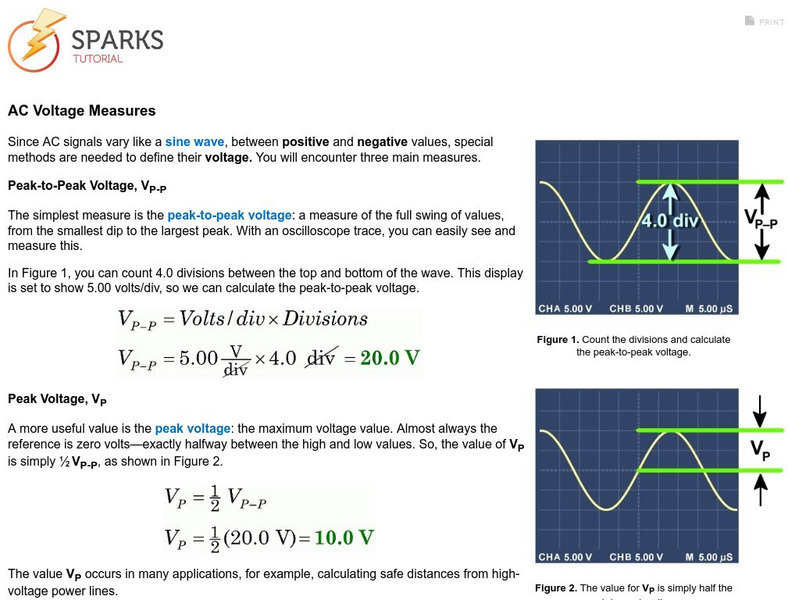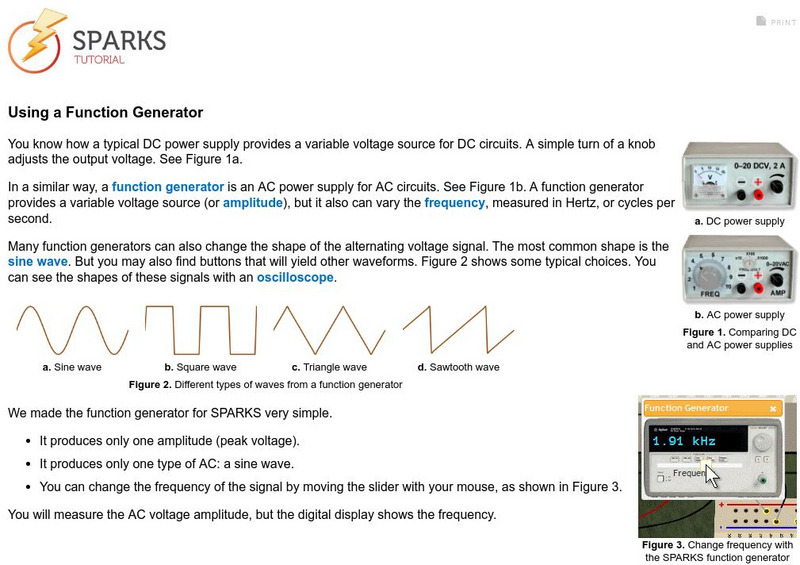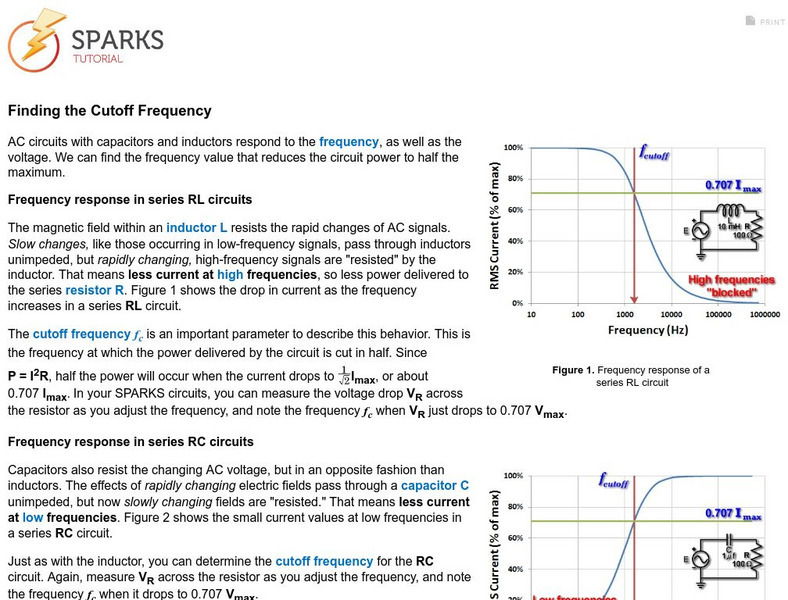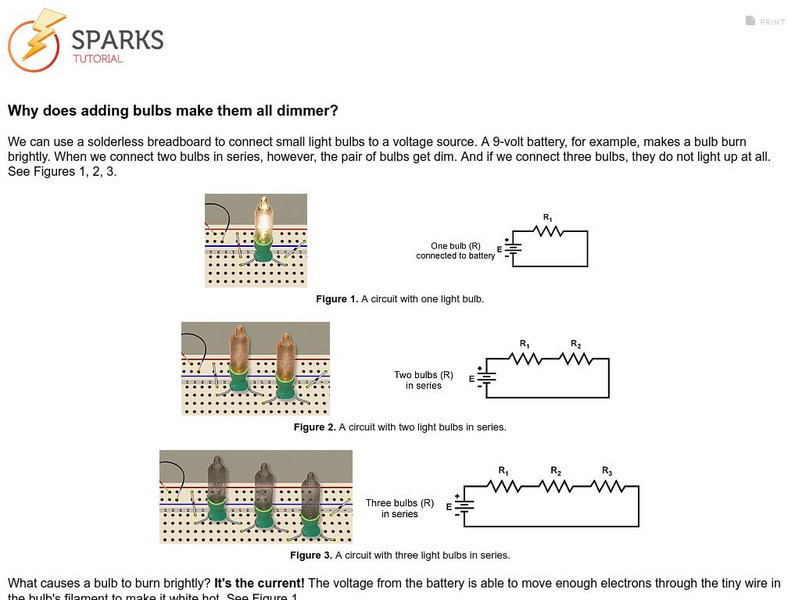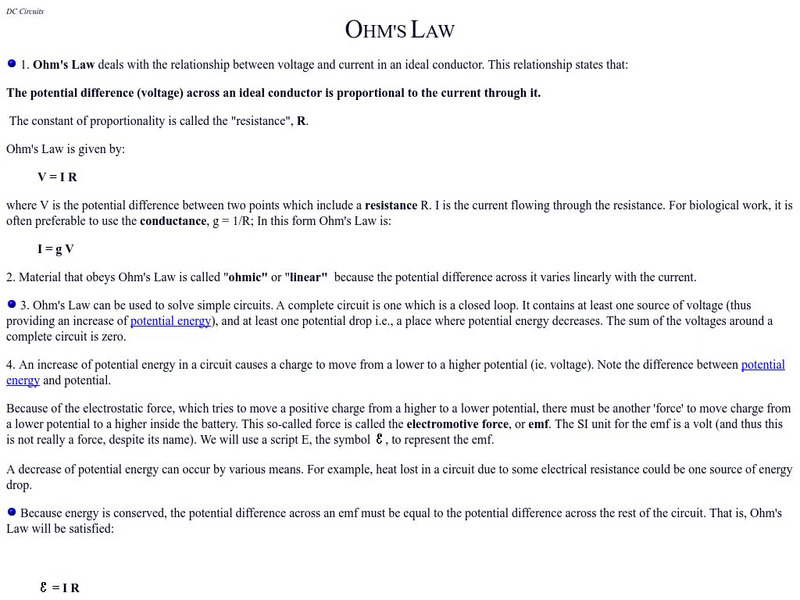Physics Aviary
Physics Aviary: Practice Problems: Parallel Circuit With Internal Resistance
Find the terminal voltage of a battery with significant internal resistance. Determine the power of one of the external components for the circuit.
Physics Aviary
Physics Aviary: Practice Problems: Finding Battery Voltage Hardest
Determine the voltage of the battery based on the colors of the resistors and the current in a combination circuit.
Physics Aviary
Physics Aviary: Practice Problems: Finding Battery Voltage Simple
Determine the voltage of the battery based on the colors of the resistor and the current in the circuit.
Physics Aviary
Physics Aviary: Practice Problems: Finding Battery Voltage Medium
Determine the voltage of the battery based on the colors of the resistors and the current in the series circuit.
Physics Aviary
Physics Aviary: Practice Problems: Finding Battery Voltage Harder
Determine the voltage of the battery based on the colors of the resistors and the current in the parallel circuit.
Physics Aviary
Physics Aviary: Practice Problems: Charge Causing Voltage
Determine the net voltage from two charges.
Physics Aviary
Physics Aviary: Practice Problems: Voltage From Two Charges
Determine the net voltage from two charges.
Physics Aviary
Physics Aviary: Simple Circuit Lab
This lab is designed to have students investigate the relationships between voltage, resistance and current in a circuit with only one passive component. The batteries in this simulation can be varied from ideal batteries to batteries...
Physics Aviary
Physics Aviary: Parallel Circuit Lab
This lab is designed to have students investigate the relationships between voltage, resistance and current in a parallel circuit with up to three passive components. The batteries in this simulation can be varied from ideal batteries to...
Physics Aviary
Physics Aviary: Internal Resistance of Battery
This lab is designed to have students look at the change in the terminal voltage of a battery that occurs as you draw more current from the battery.
TeachEngineering
Teach Engineering: Get Charged!
Young scholars are introduced to the idea of electrical energy. They learn about the relationships between charge, voltage, current and resistance. They discover that electrical energy is the form of energy that powers most of their...
Physics Classroom
The Physics Classroom: Power: Putting Charges to Work
In this tutorial the concept of how electrical energy is transformed is introduced. Learn how electric charges actually work and take the interactive quiz to assess your understanding.
Concord Consortium
Concord Consortium: Measuring Voltage in Ac Circuits
There are three different measures of AC voltage. Here, consider the peak voltage to measure it.
Concord Consortium
Concord Consortium: Ac Voltage Measures
Discover three main measures of AC voltage.
Concord Consortium
Concord Consortium: Using a Function Generator
See how a typical DC power supply provides a variable voltage source for DC circuits.
Concord Consortium
Concord Consortium: Sparks Tutorial: Using an Oscilloscope
Learn how to use an oscilloscope.
Concord Consortium
Concord Consortium: Sparks Tutorial: Finding the Cutoff Frequency
AC circuits with capacitors and inductors respond to the frequency, as well as the voltage. Find the frequency value that reduces the circuit power to half the maximum.
Concord Consortium
Concord Consortium: Measuring Ac Circuits With a Dmm
Find out how the SPARKS DMM can measure AC voltage and current.
Concord Consortium
Concord Consortium: Dc Circuits: Parallel Resistances (Sparks 2)
Explore circuits with resistors in parallel and answer questions regarding voltage drops across resistors and currents through them in such circuits.
Concord Consortium
Concord Consortium: Dc Circuits: Series Resistances (Sparks 1)
This interactive simulation guides you through the wiring of the standard breadboard and presents you with questions regarding voltage drops and currents in series resistive circuits.
Concord Consortium
Concord Consortium: Why Does Adding Bulbs Make Them All Dimmer?
This tutorial illustrates why adding bulbs to a circuit makes all the bulbs dimmer.
Concord Consortium
Concord Consortium: Dc Circuits: Series Parallel Resistances (Sparks 3)
Answer questions regarding voltage drops across resistors and currents through them in such circuits. Practice calculating the effective resistances of a set of resistances in series and parallel.
University of Guelph
University of Guelph: Physics Tutorials: Ohm's Law
Explains Ohm's Law and some facts related to it.
CK-12 Foundation
Ck 12: Physical Science: Electric Current
[Free Registration/Login may be required to access all resource tools.] Explains what electric current and voltage are and why electric current occurs.





